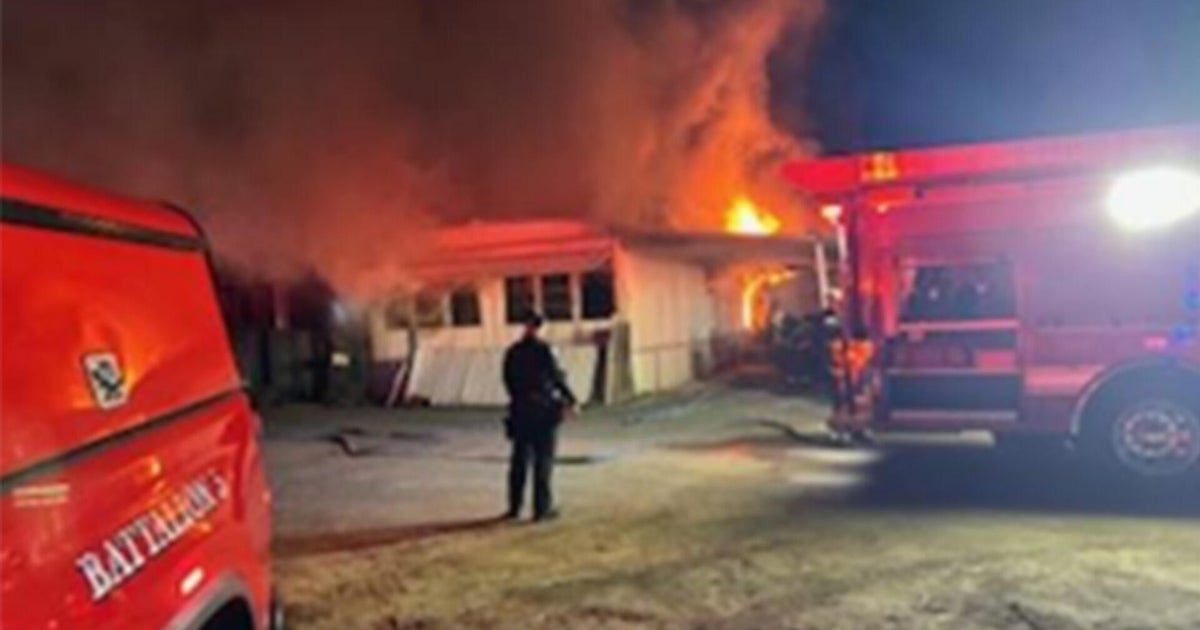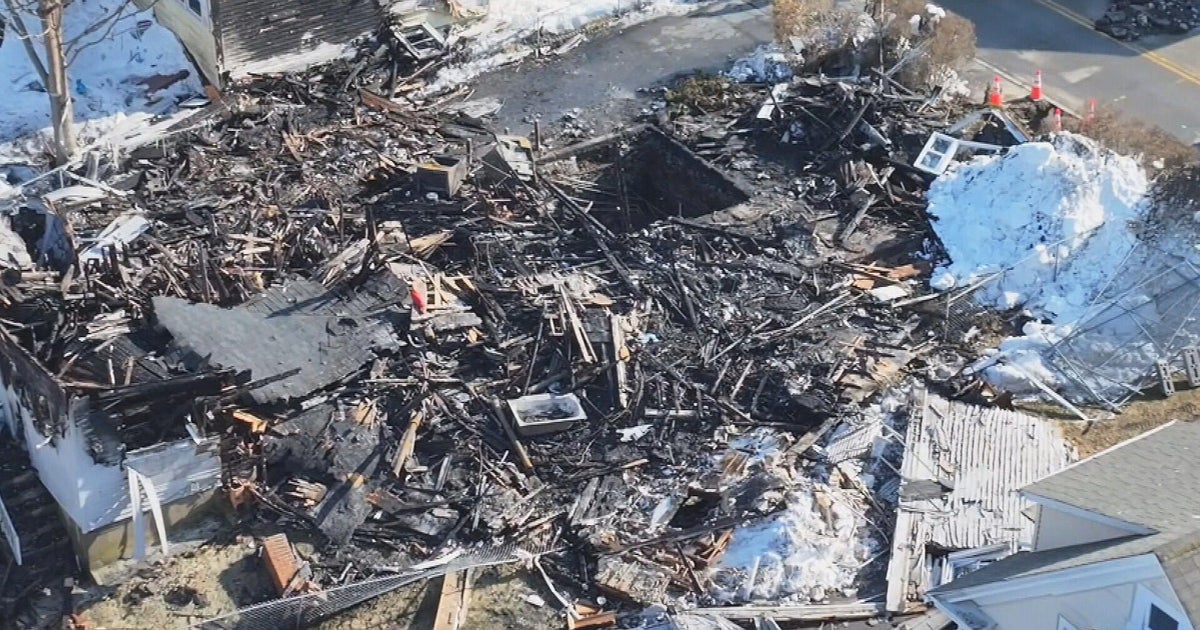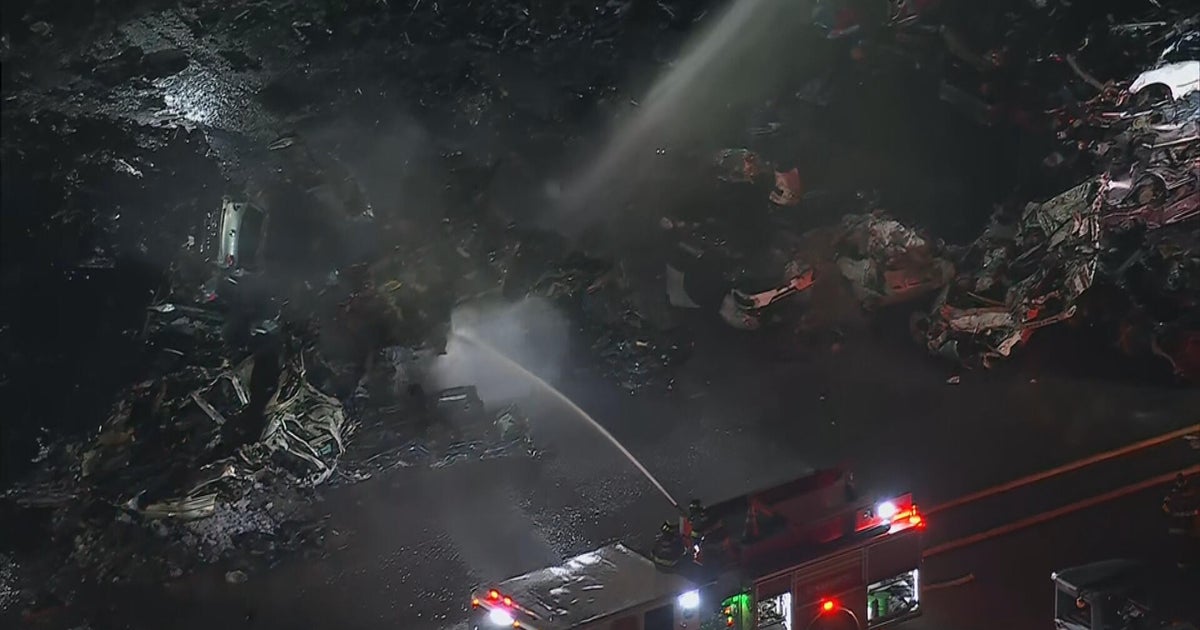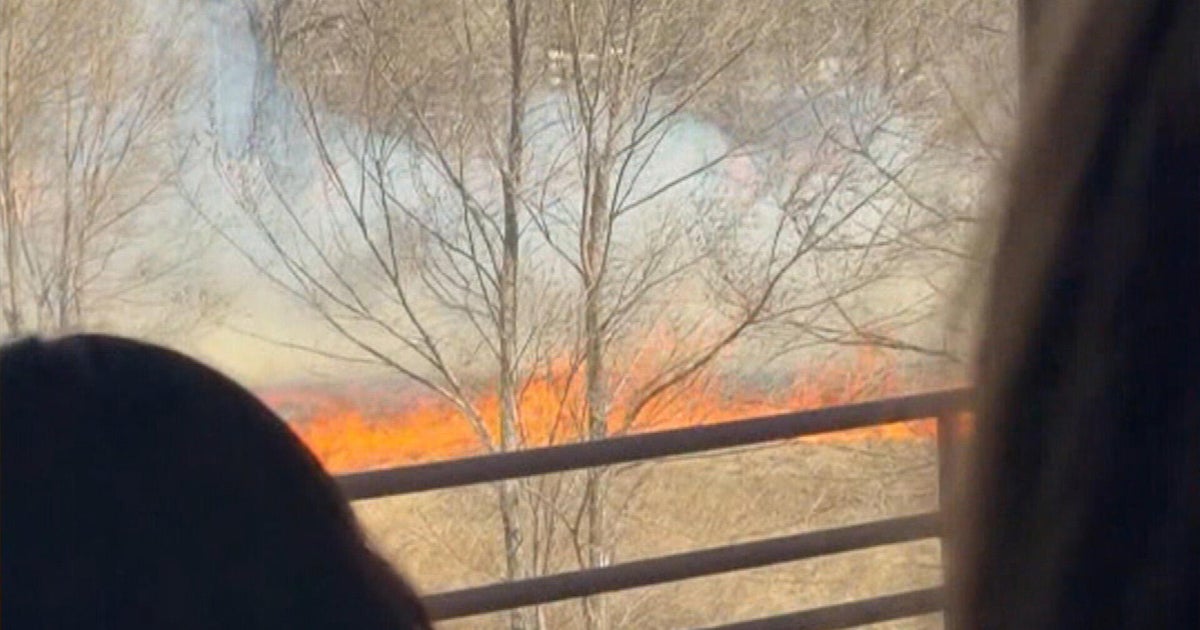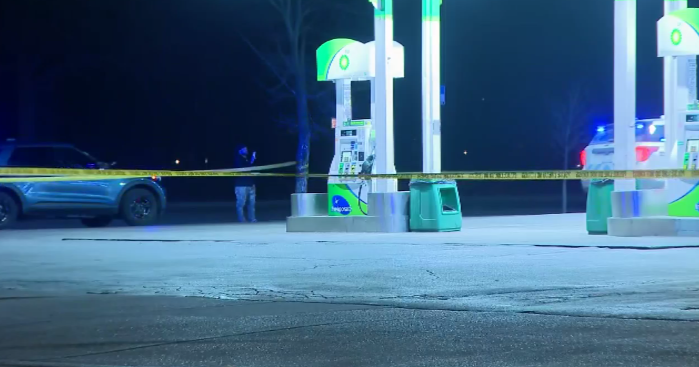Sediment Clogs Wild Natural Gas Well In Gulf
NEW ORLEANS (AP) - Natural gas has stopped flowing from a well that has been ablaze in the Gulf of Mexico and remaining small flames are from gas still in the pipe, regulators said Thursday.
The well "bridged over," the line blocked by sand and sediment that filled in the area being drilled, the Bureau of Safety and Environmental Enforcement said in a news release.
"The fire has decreased to a small flame fueled by residual gas at the top of the well," the statement said.
It said both BSEE and the Coast Guard have flown over the well to check this and will oversee work until the well is secure.
The well blew out Tuesday and caught fire late Tuesday night, collapsing part of the 30-year-old jackup rig.
Because the well involved is a natural gas well, not an oil well, experts said the pollution threats are far less than those posed by some previous accidents.
Federal inspectors said a light sheen was spotted around the rig Wednesday evening but — like one spotted shortly after the blowout began Tuesday — it quickly dissipated.
Gas wells often also have oil or other hydrocarbons as well as natural gas. Officials and scientists agree the latest mishap should not be nearly as damaging as the BP oil spill, also in the Gulf of Mexico, that sent crude oil oozing ashore in 2010.
Tuesday's blowout, which prompted the safe evacuation of 44 workers, occurred at a drilling rig adjacent to a natural gas platform that wasn't producing gas at the time. The rig was completing a "sidetrack well," which drills into the same well hole under the platform. Such wells are used to remedy an obstruction or to access a different part of the gas reserve.
Gas spewed throughout the day and ignited late Tuesday night. The cause of the blowout was under investigation, one being overseen by the federal Bureau of Safety and Environmental Enforcement.
By Wednesday evening, the derrick and drill floor structure had collapsed. A fireboat was pumping water on the rig in an effort to keep as much of it as cool as possible.
The Coast Guard maintained traffic restrictions within 500 meters of the site and the Federal Aviation Administration restricted aircraft up to 2,000 feet over the area.
University of Georgia marine scientist Samantha "Mandy" Joye said the accident, the second blowout off the Louisiana coast this month, raises concerns about whether more regulation is needed.
"I believe that BSEE is taking rig safety very seriously, but more active rigs give rise to more opportunity for problems. Accidents can happen," she said.
Environmentalists in Louisiana said the accident proves the need for strong oversight of offshore operations.
Darryl Maleck-Wiley of the Sierra Club said, "Once again this is highlighting the dangerous nature of oil and gas operations in the Gulf and that we need aggressive inspection programs of these operations by the federal government."
(© Copyright 2013 The Associated Press. All Rights Reserved. This material may not be published, broadcast, rewritten or redistributed.)
Also Check Out:
- Tragedy On The Texas Giant Roller Coaster
- More North Texans Sick With Cyclospora Infection
- Local Mugshots
- Officer Shot Near Home Of Murdered 6-Year-Old Girl
- DFW Restaurant Week 2013 List
MOST VIEWED GALLERIES
- PHOTOS: Your Pet Pictures
- PHOTOS: Severe Weather Aftermath - May 16
- PHOTOS: 'Royal Baby' Pictures

